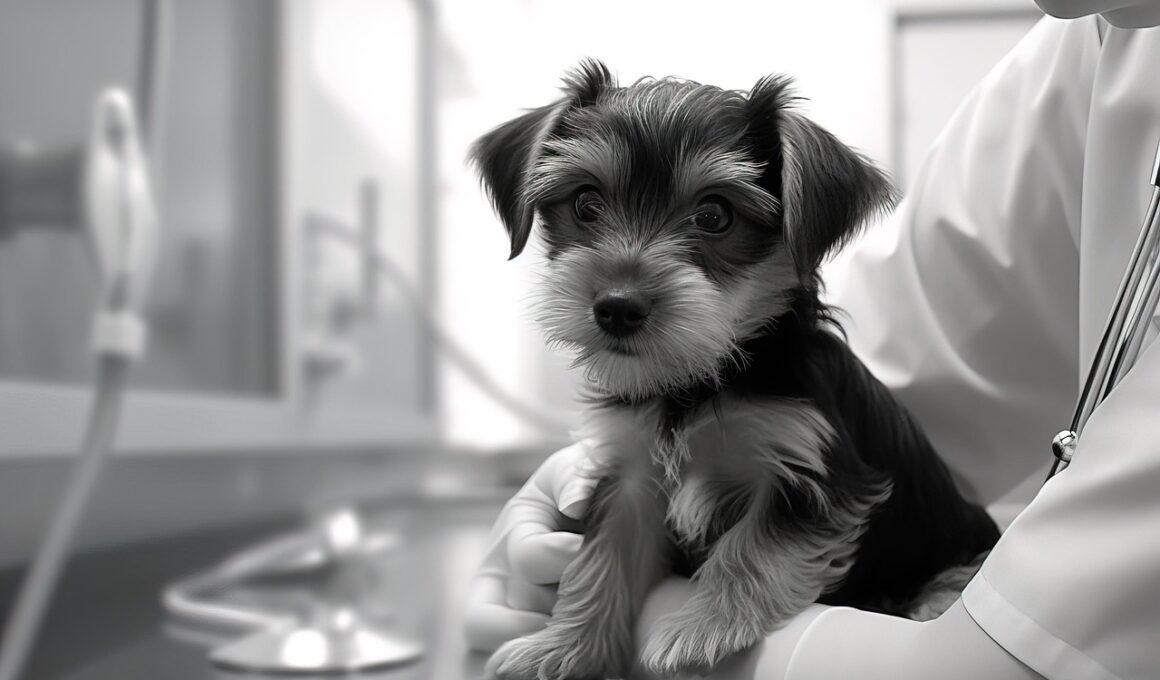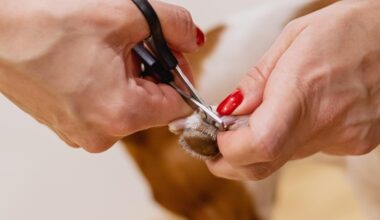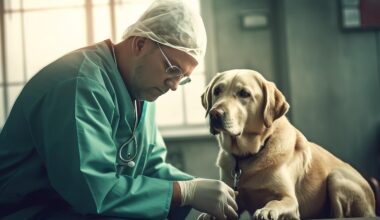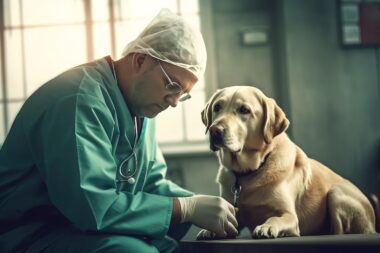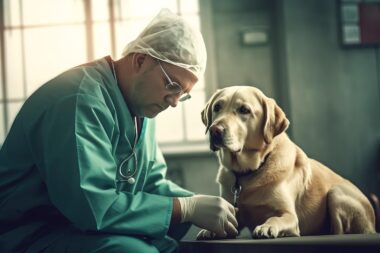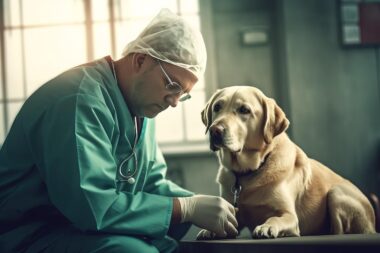Post-Vaccination Care Tips After Travel Vaccinations for Dogs
After your dog receives travel vaccinations, it’s essential to provide proper care to ensure they remain healthy and comfortable. Watch out for any adverse reactions, which can occur after vaccination. Common symptoms may include lethargy, mild fever, or soreness at the injection site. It’s important to monitor your dog closely for the first few days after vaccination. If you notice any unusual behavior or severe reactions, contact your veterinarian immediately for advice. Keeping your dog calm and relaxed during this time is critical. Avoid strenuous activities and provide plenty of fresh water. Feeding them their favorite food can help ease any discomfort. Comfort your dog with gentle petting or their favorite toy. Socializing after vaccinations is important, but ensure it’s in a controlled environment where your dog feels secure. Gradually reintroducing their regular routine helps them adjust without overwhelming them. Regular check-ups with your vet after vaccination can also ensure everything remains on track. Overall, being vigilant and attentive post-vaccination will support your dog’s health and welfare.
Hydration is critical after any medical procedure, including travel vaccinations. Ensure your dog has easy access to fresh, clean water at all times. Sometimes, vaccinated dogs may temporarily lose their appetite or feel slightly unwell. If you notice this, encourage hydration by offering ice cubes or ice chips, which many dogs enjoy. Additionally, you can try offering low-sodium broth to entice them to drink more water. If your dog remains hesitant to drink for more than 24 hours, consult your veterinarian. Hydration plays a vital role in the immune response and overall recovery from vaccinations. A hydrated dog is likelier to bounce back quickly and comfortably. After the initial post-vaccination period, gradually resume your dog’s regular hydration and feeding schedule. Keep in mind that some travel vaccinations may require additional doses, so ensure you maintain a record of your dog’s vaccination schedule. This record will be crucial for your vet visits and when traveling. Remember, proactive hydration strategies will lead to quicker recovery and greater health for your beloved pet.
Rest and Recovery
Rest is paramount for your dog after receiving travel vaccinations. Allowing your dog time to relax promotes a healthy recovery. Avoid engaging in high-energy activities such as sprinting or playing fetch for at least 48 hours post-vaccination. Instead, provide a comfortable, quiet space where your dog can rest and heal. Make their bed cozy with familiar blankets or toys, as these can bring comfort during recovery. During this period, keep your dog away from stressful environments or other pets, especially if they’re potential stressors. Additionally, take time to monitor your dog’s behavior, ensuring they remain calm. Finding ways to keep your dog entertained without physical exertion can be beneficial. Consider puzzle toys that challenge their mind without demanding physical activity. Interactive games can stimulate your dog’s brain while they lay down. Patience is key; every dog reacts differently to vaccinations. Allow them the space and time they need to feel normal again. Understanding that your dog may require a slower pace for a short period post-vaccination will be beneficial for their recovery.
Diet is another important aspect of post-travel vaccination care. It’s common that dogs may experience slight changes in their appetite. During this time, it’s crucial to provide a balanced diet that supports their immune system. You might consider serving smaller and more frequent meals, along with easily digestible foods such as boiled chicken and rice, at least for the first couple of days. Gradually transition back to their regular dog food after observing that your dog is eating without issue. Always ensure you provide fresh water alongside their meals, as hydration enhances digestion and overall recovery. Supplements may also be considered; consult your vet about essential vitamins or nutrients your dog may need to recover effectively. Keeping an eye on their stool can give you insight into their digestive health after vaccination. If you notice changes like diarrhea or vomiting persisting for more than a day, reach out to your vet immediately as it might indicate a reaction or underlying issue post-vaccination. Maintain an open line of communication with your vet regarding your dog’s dietary needs for optimal recovery.
Monitoring for Reactions
Monitoring your dog for any potential vaccine reactions is vital after travel vaccinations. Common reactions may include localized swelling, allergic reactions, or other more severe symptoms. Observing your dog closely during the first week is essential. Key signs to look for include excessive scratching, swelling around the face or eyes, vomiting, or diarrhea. Should your dog display any abnormal behavior or severity of symptoms, don’t hesitate to contact your veterinarian immediately. Recording the vaccination date, type, and any observed reactions in a pet health journal can be useful during vet visits. It also helps screen for any patterns if multiple vaccinations are involved. Keeping their routine as consistent as possible helps you notice any changes in behavior clearly. Engage with them regularly to gauge their energy levels and mood. If they seem lethargic or withdrawn beyond the expected recovery range, consult with your vet for further evaluation. Being proactive can lead to quicker interventions should complications arise. Always prioritize your dog’s health by staying informed and responsive to their needs post-vaccination.
Socialization is another critical element to consider after post-vaccination care. While it’s important to prevent overwhelming your dog, social interactions help in their emotional and psychological well-being. Start with quiet, familiar environments such as your home or a friend’s house. Introduce gentle social encounters with other vaccinated pets to allow your dog to regain their social skills. Observing your dog’s comfort levels is key; if your dog seems anxious or distressed, give them space and time to readjust. Gradually increase the exposure to new settings or larger groups, ensuring your dog remains comfortable. Involving them in smaller meetings will build their confidence steadily. If you decide to visit a dog park, ensure it’s a safe and manageable environment for your dog’s reintroduction. Monitoring interactions with other pets is crucial for ensuring their safety. Always prioritize their emotional health alongside physical well-being. Engage in training exercises intertwined with socialization to help them feel secure and engaged. Following these steps can help your dog recover emotionally and physically while building their resilience post-vaccination.
Follow-Up Vet Visits
Regular follow-up visits to the veterinarian following travel vaccinations can be beneficial for your dog’s ongoing health and well-being. During these visits, your vet will assess your dog’s overall condition, check for any responses to the vaccination, and ensure they are healing properly. Keeping an open line of communication with your veterinary team is essential as they can provide personalized recommendations based on your dog’s specific needs. Discuss any concerns you may have, including questions about diet, behavior, or any changes you’ve observed since vaccination. Your veterinarian is also equipped to suggest further vaccinations that may be necessary later in your dog’s life. Keeping meticulous records of your dog’s vaccinations and any reactions or health changes will aid in their future medical care. Consider establishing a schedule for annual check-ups, coordinating with vaccination timelines. Ensuring adequate healthcare continuity plays a key role in your dog’s long-term health. Investing time in follow-up care ensures that your travel experiences with your beloved pet continue to be both safe and enjoyable.
In conclusion, managing your dog’s care after travel vaccinations significantly contributes to their health and well-being. Each aspect, from hydration and diet to monitoring reactions and follow-up visits, plays an essential role. By keeping your dog well-rested and gradually reintroducing them to their regular social activities, you can ensure a seamless recovery. Remember that your veterinarian is a valuable partner in ensuring your pet’s post-vaccination care. They are there to help guide you through any concerns and provide support when necessary. Understanding that every dog is unique and may respond differently to vaccinations is crucial. Paying close attention to your dog’s behavior will help inform your care approach. Follow the outlined steps for post-vaccination care to create a nurturing environment for your beloved pet. Your proactive care means a healthier, happier dog ready for future adventures. Always prioritize strong communication with your veterinarian to address any lingering questions or uncertainty. Travel can be a rewarding experience for both you and your dog, so ensure proper vaccination care is in place for a smooth recovery.
